
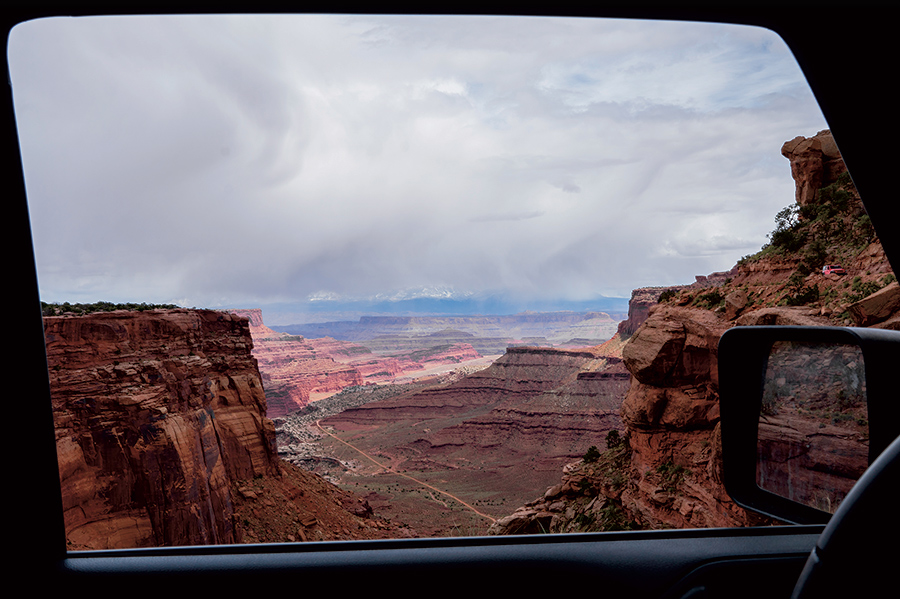

he call of the open road is one of the great, prevailing themes of American life. It’s explored in seminal works ranging from Mark Twain’s travel narratives to Jack Kerouac’s On the Road to, more recently, Elizabeth Gilbert’s blockbuster memoir Eat Pray Love and this year’s Academy Award-winning film Nomadland, directed by Chloé Zhao.
In recent years, the popular Instagram hashtag “vanlife” has inspired a younger generation to hit the road, while the increased ease of remote work has collapsed the boundary between the office and vacation. Business investors are also exploring more ways to cater to vanlife culture, according to a 2020 New York Times story, such as building parks with areas for children and pets and business centers with office essentials.
Many Bucknellians have also embraced the open road. They range from retirees to current undergrads, traveling in vans or RVs, Jeeps or trailers and sleeping in every situation imaginable.
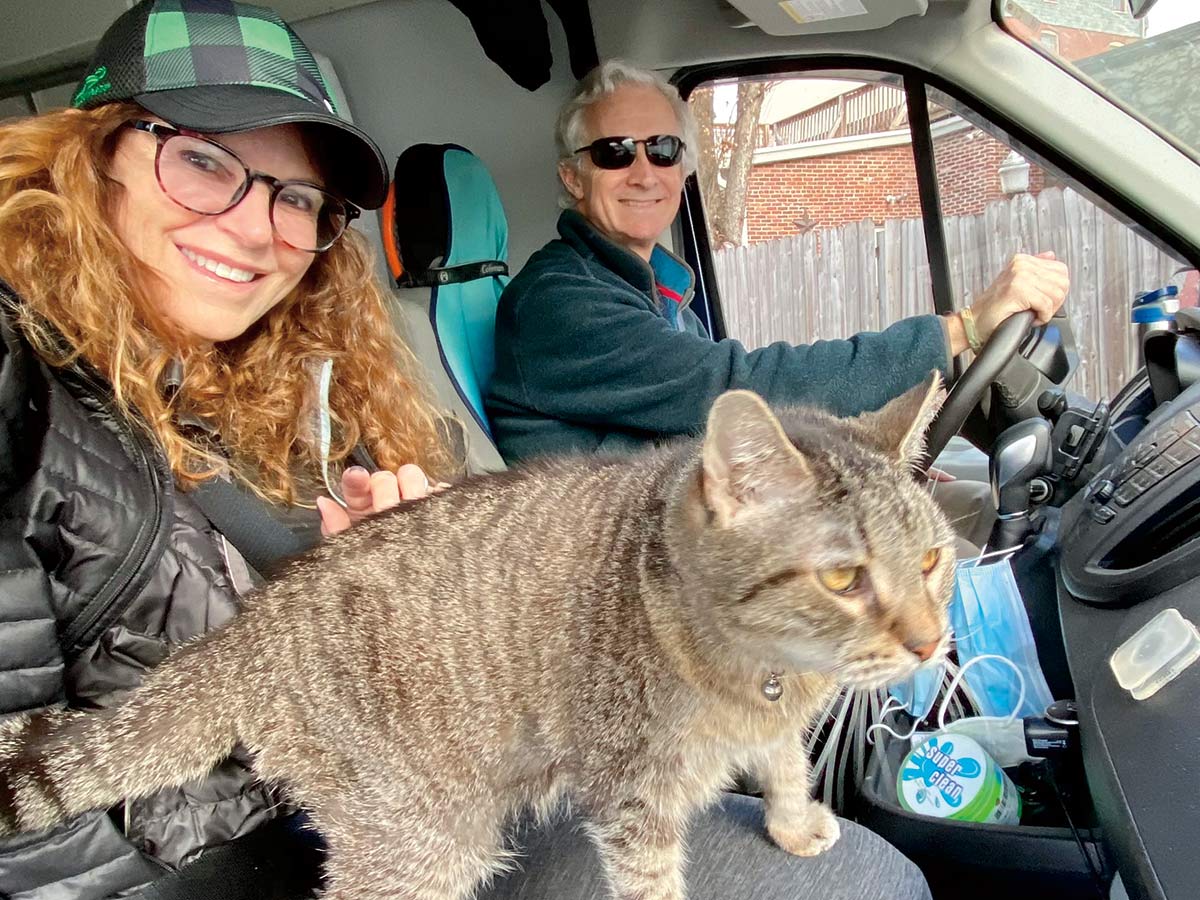

They bought it sight unseen and built it out into a full RV, complete with fridge, freezer and sink; a two-burner gas stove, bed, shower and cassette toilet; and solar panels on the roof. Since first setting out in May 2020, they’ve explored the West, New England, the South and Southwest. Avid bikers — their Elliptigo bikes occupy a hefty chunk of space — their goal is to visit all 63 national parks and bike 100 miles in every state. (They’ve visited 29 parks and ridden in 10 states so far.)
Traveling during a pandemic is strange. On the Maine border, they had to get COVID tests. Some places are emptier than normal, while others are unexpectedly more crowded, because more Americans have been traveling domestically. And during their winter travels, they had to make four separate trips back to Pennsylvania for vaccine shots, because they were in different eligibility categories.
However, they never had to worry about hotel reservations, and what better way to socially distance than in a van where “everything you need is in your 72 square feet,” says Hines. He’s also loved venturing to places he’d never considered, such as wineries, breweries and farms, through a membership program called Harvest Host, which helps RV travelers find free locations to park. Nothing beats “opening the doors and looking out on water or mountains,” says Hines.
That said, there are downsides, like having to overnight outside retail stores en route to national parks, “hearing the traffic outside, and knowing you’re in a parking lot.” Also tricky: traveling with a 19-year-old cat. “The kitty litter box is right under our heads when we sleep, and we’ve definitely had times when we’ve woken up and said, ‘Ugh, kitty. What did you eat?’ ” Hines says.
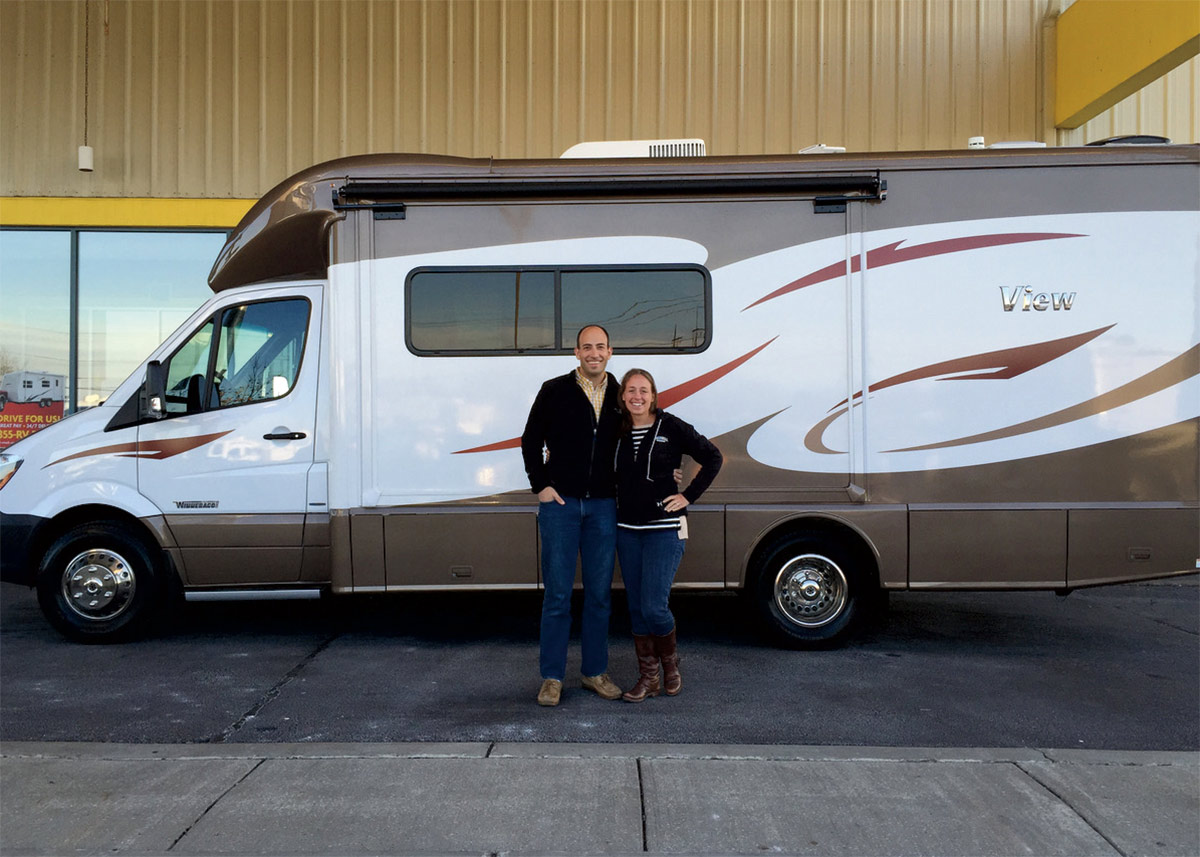

More than once, they spent the entire day sitting in a parking lot, doing work while waiting on RV repairs. “There are always going to be things that come up that are out of your control, and you just have to roll with it” — something Liz cautions others interested in vanlife to anticipate.
On the other hand, seeing the beauty of the American landscape, discovering the community of people who live on the road and having meaningful conversations about love and marriage with their photo subjects were incredibly rewarding. The couple turned the project into a book called Amazing Life Together: Inspiring Love Stories from All 50 States.
Nowadays, the couple runs a restaurant called Well Crafted Kitchen, which keeps them anchored in Baltimore. But they’ve kept the RV and take it on shorter jaunts or rent it out. There’s no shortage of interested parties. “I can’t tell you how many people would stop us when we were on the road,” Liz says. “Once, in Savannah, Ga., we were getting out, and a woman slowed down and yelled out her window, ‘You’re living my dream!’ ”
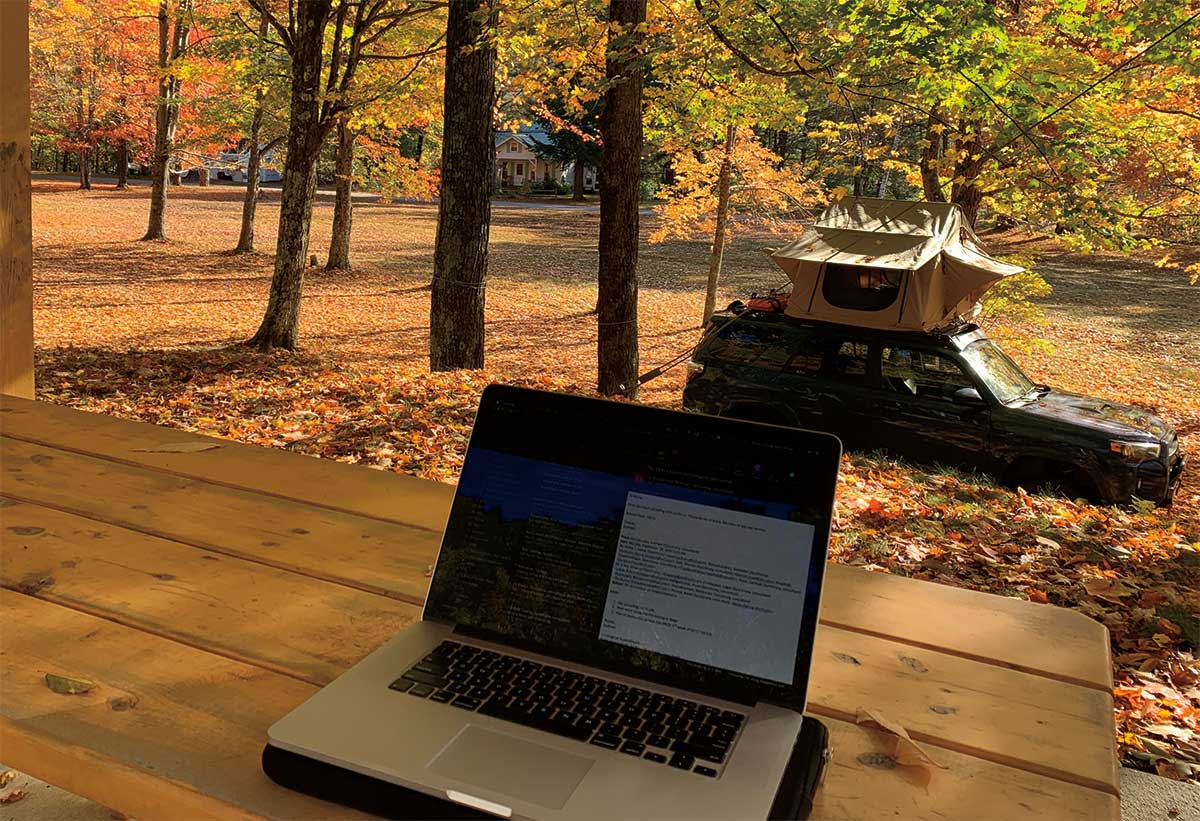

Bogan now works for a credit-card company, which will allow employees to keep working remotely even after the pandemic ends. Eager to test the limits of what that can entail, Bogan (who is based in Connecticut) spent a week last fall in Montana and another week in the New Hampshire mountains, working from the rooftop tent of his Toyota 4Runner and hiking each day after closing his laptop. A lifelong outdoors enthusiast (he also spent two months driving 12,000 miles and photographing the U.S.), he’s pondering how to further integrate his work life with a love of adventure. “Wi-Fi is a powerful thing,” he jokes.
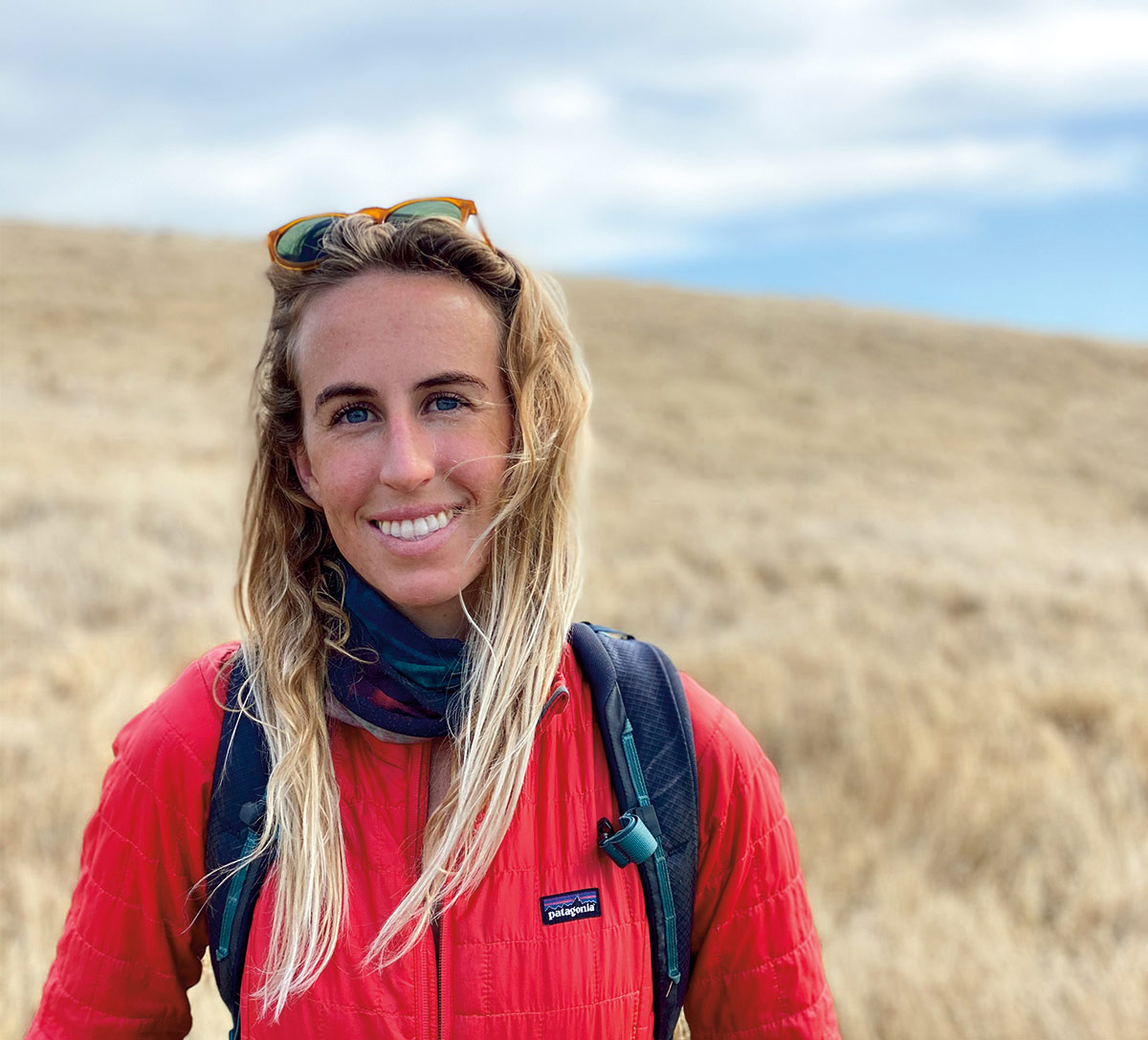

The international relations and East Asian studies major first caught the travel bug while studying abroad in Beijing during her junior year. After graduating, she worked at a real estate firm. Then, in 2015, she took a trip to Nepal, where she experienced an 8.1-magnitude earthquake. “I realized life is way too short, that I was feeling disillusioned with working in a cubicle,” she says. She quit her job and became an adventure tour guide, working in locales such as Bryce Canyon and Zion national parks in Utah as well as Mongolia and China. Throughout, she often received Instagram messages from people of all ages, saying she was living their dream and asking how she did it. She found herself repeatedly explaining how to find seasonal outdoor jobs like hers. That inspired her to start Occupation Wild — while living out of a Jeep Wrangler.
“I would hotspot Wi-Fi inside the vehicle or go to coffee shops,” she recalls. Even after returning home to California, she decided to live out of her car to save on rent. She had several surreal moments including squeezing her 5-foot-10-inch frame among three surfboards, and getting stuck in a snowstorm en route to the Grand Canyon and having to eat cold canned chili and sleep on a rock-hard pillow, because the memory foam had frozen. One time she had to get ready for important Zoom calls with big-industry companies while she was at a local climbing gym where she’d showered. Once, she attended a splashy movie premiere featuring a famous skier — doing her makeup beforehand at the gym — then realized at the end of the night, “Oh my gosh I have to go back and sleep in my car.”
Condy is based in a beach house in San Diego these days, though the entire company is remote, and she and the other employees fit plenty of surfing and travel into their days. But even when she can’t get on the road, she takes satisfaction in helping others hit the trail. “We get the most beautiful messages every day from people heading up to their new job at Bryce or the Grand Canyon or Vail,” she says. Another constant: people who ask, “ ‘I’m not sure; what if I hate it?’ And I say, ‘You can always just try it out.’ ”
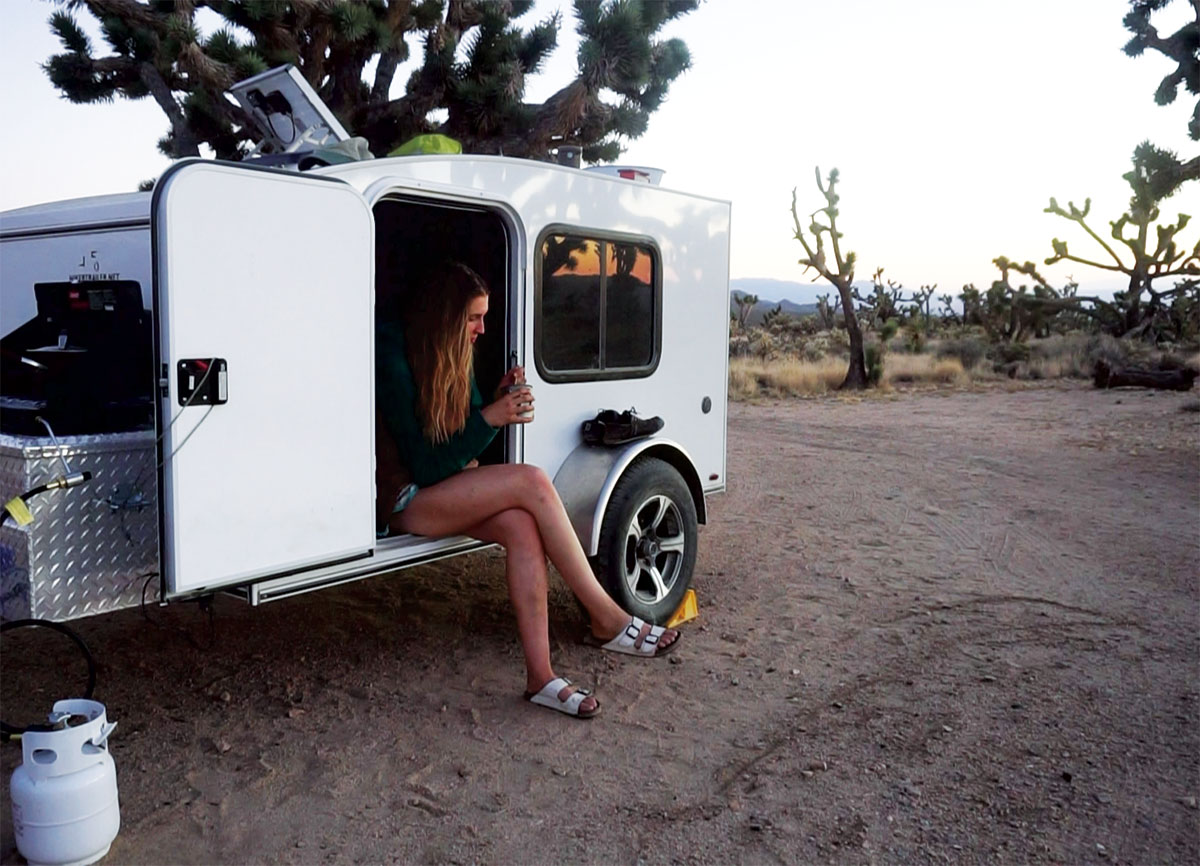

Being exposed to outdoor work was eye-opening. After a stint at home in Virginia, working in an office job to save up money to buy a teardrop trailer, Purnell took a two-year position as an ecological field monitor with AmeriCorps in Reno, Nev. Due to the seasonal nature of the job, she was able to alternate one-week work stints collecting vegetation data with six-day stints traveling on her own, with the trailer in tow. She explored Lake Tahoe and Mount Shasta, among other places, and “received all this love and kindness from strangers all over” from communities of fellow travelers. “There’s something about motion that allows people to open up and connect with each other, maybe because it is temporary,” she muses.
At the end of the work season, she also did a monthlong solo road trip, exploring Yosemite, New Mexico and beyond. “Women traveling, and women in the backcountry, was something I became passionate about through [Bucknell] OEL [Outdoor Education & Leadership], and feeling empowered to do that on my own was really special,” says Purnell. The neuroscience major and former volunteer for Professor Andrea Halpern’s Music Cognition lab at Bucknell now manages the Sound Health Network and coordinates research at the University of California San Francisco Sound and Music Perception Lab and guides trips on weekends. “Your heart and mind are so open when you’re in a natural setting,” she reflects. “I’m still figuring out what I want in life and career, but I’m really grateful to that time that has shaped and continues to shape my life today.”
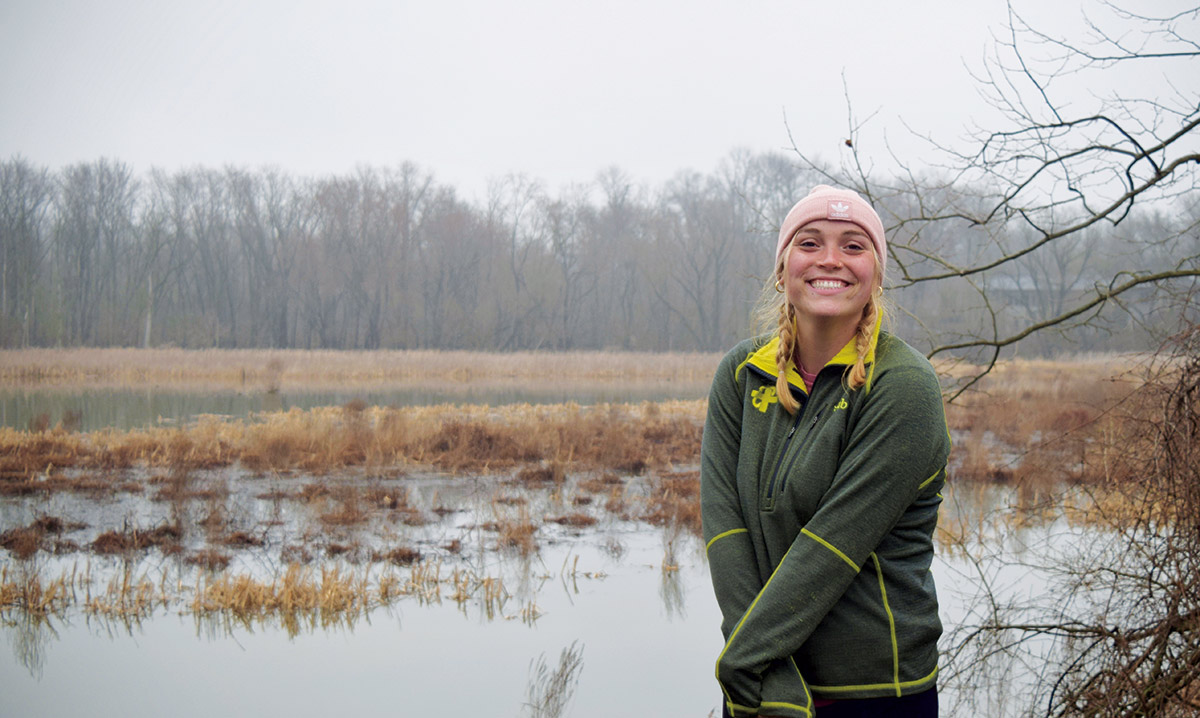

Bergeron fondly recalls doing geological work in Nevada and Arizona as a first-year student and, later, visiting national parks in Utah with OEL, which she found “incredible.” Throughout the pandemic, the landscape of Lewisburg, with its plethora of hiking and kayaking options, was essential to keeping her sane.
“I’m pretty sure the Susquehanna River has actually changed my life,” she says. “Sitting there, hearing the wind or watching the sunset, I think to myself, ‘This is what it feels like to be happy.’ ”